Opinion | Agents of Chaos: how the U.S. seeded a colour revolution in Hong Kong
By Laura Ruggeri
If twenty years ago someone had predicted a colour revolution in Hong Kong, most political analysts would have laughed. Not because colour revolutions are laughable — their tragic consequences can hardly be laughed off — but because they tend to occur in target states with weak governance at the periphery of transnational networks. Hong Kong, on the other hand, is one of the top 3 global financial hubs, following New York and London, and right at the centre of those networks. Though Hong Kong, a special administrative region of China, didn’t apparently fit the profile of a weak target ripe for regime change, the National Endowment for Democracy (NED)[1] and other notorious sponsors of colour revolutions had already set their eyes on the territory even before 1997, when its sovereignty returned to China. As China’s economic growth rates made the headlines in the 1990s, “China’s threat” arguments started to appear in the US mainstream media and foreign affairs analysts began to cast China as the “new red peril”, a potential challenge to the U.S.’ global supremacy.[2]
Although two decades ago the trade war hadn’t broken out yet, anyone looking at the bigger, geopolitical picture could see black clouds gathering.
In this article, I will try to explain why the territory, situated at the periphery of China, like Tibet and Xinjiang, was actually a softer target than either of them for those striving to destabilize China. I will also outline some of the strategies used by agents of regime change to prepare the ground for both the 2014 Umbrella Movement and 2019 riots that rocked Hong Kong.

On the surface, post-reunification Hong Kong was running extremely well, but if one scratched the glossy surface typically associated with an international business and financial centre, one could immediately see that this efficiency masked much deeper problems. Hong Kong certainly had good administrators, but not many who could truly govern a city that was still politically immature due to its colonial legacy, and dominated by vested interests and cartels. The One Country Two Systems experimental model was still being fine-tuned and little progress had been made towards the decolonization of Hong Kong’s institutions and, most crucially, its people’s minds. By all appearances, the process of creating a sense of identification with, and loyalty to, China was still in its infancy. In contrast, transnational actors, most notably churches, NGOs, and advocacy networks regarded by the US as “vectors of influence” and “catalysts of democratization” were well-entrenched in the Hong Kong civil society. Working in concert with US-sponsored local media and pro-democracy parties they subjected both China and the local government to constant criticism, exploiting domestic grievances in order to deepen rifts in society and achieve the sort of partisan and ideological polarization that would make Hong Kong ungovernable.
If the local government had acknowledged and defined the risks, it would have been able to recognize a pattern in a seemingly random set of events. All it had to do was gather intelligence and match the information received with what was already known about colour revolutions and their genesis.
Regrettably, the Hong Kong government was too busy reassuring opposition parties (whose allegiance to the U.S. is no mystery) and that imaginary entity known as the ‘international community’, that China was not undermining Hong Kong’s autonomy, to actually notice the big elephant in the room.
Hong Kong lawmakers failed to acknowledge that the political feasibility of One Country Two Systems ultimately rests on the stability of One Country, without which any talk of Two Systems becomes preposterous. System stability is never a given, equilibrium must be maintained through a balance of forces. So, when foreign players started coordinating campaigns aimed at shaking the foundations of this constitutional arrangement and hindering the process of Hong Kong’s re-absorption into China’s sphere of governance, the defense of China’s sovereignty should have taken precedence over other considerations. The ‘do less, get less wrong’ mentality often displayed by civil servants and lawmakers made them ill-prepared to resolve serious crises and tackle social problems. Most notably, their hands-off approach created a dangerous vacuum that could easily be filled by subversive elements and groups with proven ties to the U.S. government.
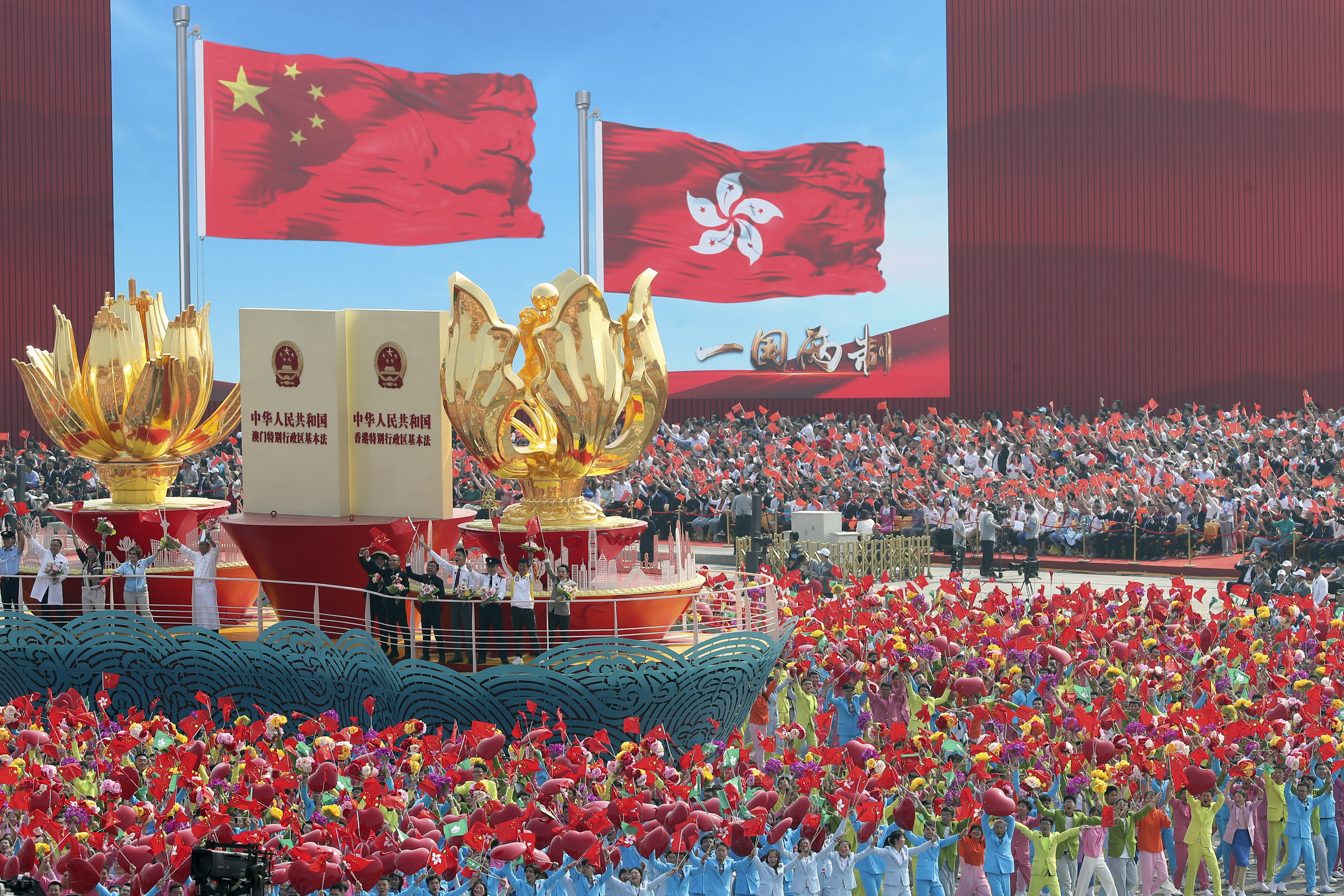
Anyone familiar with colour revolutions would have recognized the pattern that was already emerging in campaigns aimed at discrediting both the central and Hong Kong government. The process of ideological subversion is always underpinned by a slow penetration into the institutions of a target country, fractious opposition parties magically form a united front, a small army of local volunteers and foreign agents co-operate to promote what is touted as ‘civic action’, a network of foundations and NGOs mushrooms to receive millions of dollars, new media outlets appear.
The ideological seeds of colour revolutions are sown long before anti-government movements organize mass demonstrations and engage in violent confrontations with the police.
These seeds can be dispersed in a number of different ways but can only grow if they fall on congenial soil, otherwise they will stay dormant until conditions in their microenvironment become favorable.
As a former academic studying the semiotics of culture, I would argue that the cultural field is not only perfectly suited for the germination of these seeds, but it’s directly involved in their multiplication and distribution.
In order to understand US-sponsored regime-change, we should acknowledge culture and theory as crucial weapons in the overall arsenal deployed to perpetuate US interests around the world and conceive a cultural defense system capable of identifying danger and neutralizing it. Letting a foreign power occupy the field of cultural production, dominate public discourse, and frame the narrative is tantamount to giving a burglar in your home a guest pass. And that is exactly what the Hong Kong government did for over twenty years.
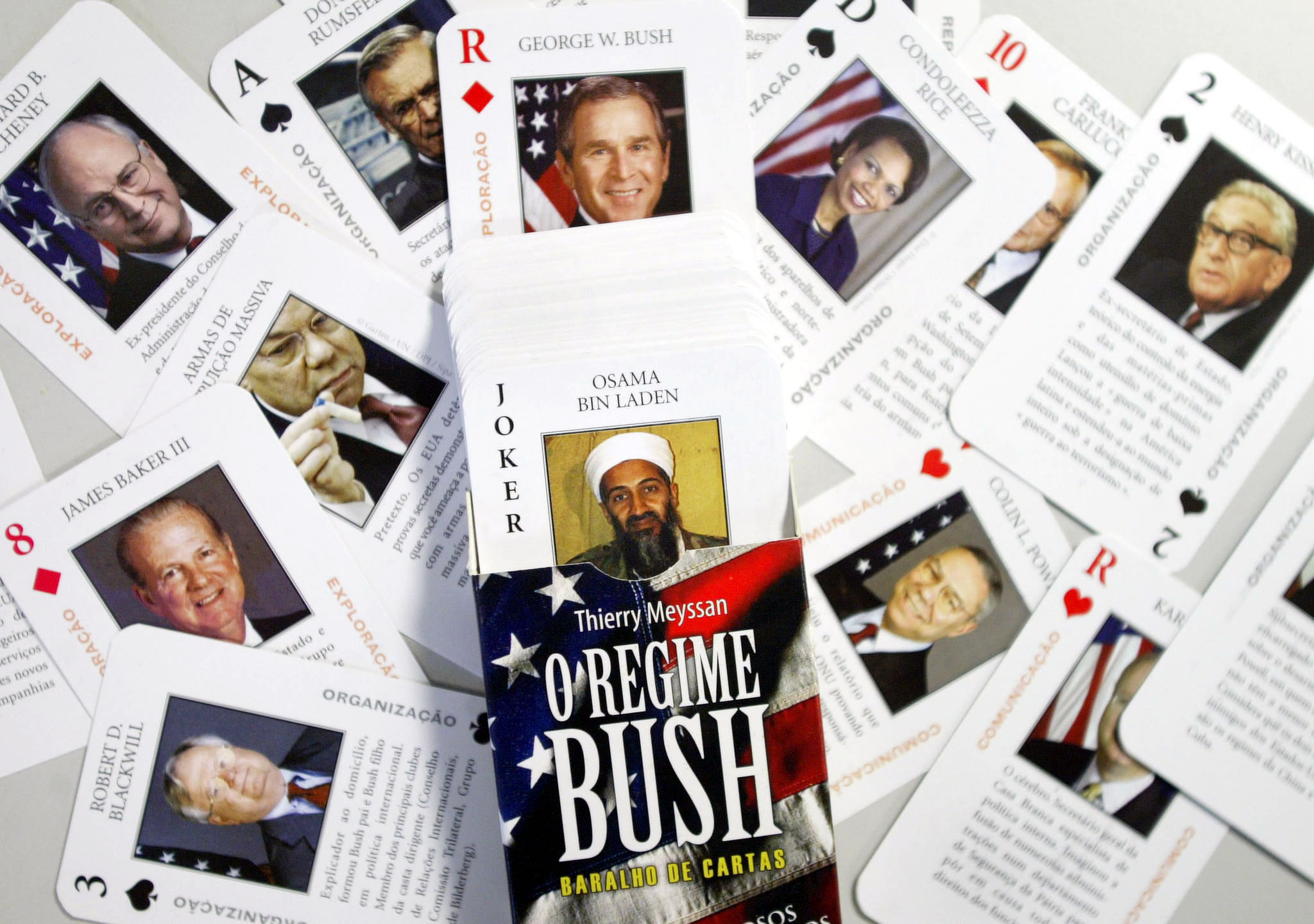
We also need to understand that no matter how abstract they might be, ideas still require trusted agents to sow them and tend the field. The Swarm Model, employed in artificial intelligence and hybrid warfare, provides a good example. Swarming is a seemingly amorphous and yet coordinated type of behavior, where a cluster of agents interact with one another and with their environment. The agents follow very simple rules, and although there is no centralized control structure dictating how individual agents should behave, local, and relatively random, interactions between such agents lead to the emergence of ‘intelligent’, collective behavior. Interestingly, some agents might not be aware of the role they play as it becomes totally natural to them. Examples of swarm intelligence exist in natural systems such as ant colonies, bird flocking, fish schooling, bacterial and microbial growth, etc.
China’s adversaries operated undisturbed in our city, built strongholds in academic circles, rose to positions of power and influence in the culture industry as even a cursory look at a course syllabus, film festival program or literary magazine would show.
Since Hong Kong didn’t experience anything like the people’s struggles for liberation from colonialist rule that led to the rejection of colonial identity in other countries, it soon became clear that building a Chinese national identity in post-handover Hong Kong would require sustained and concerted efforts. Regrettably very little was done in this respect: when British rule ended in 1997 it left behind a toxic legacy of colonial institutions, British-trained civil servants and a damaged collective psyche precariously held together by a false sense of superiority towards mainland China. The kind of cultural capital that promised social acceptance and distinction in stratified, class-conscious Hong Kong, was largely made of material and symbolic goods coming from the West.
Hong Kong was, and still is, teeming with educators, academics and cultural workers who are either foreigners, foreign-educated or share a neocolonial mindset anyway. They are the swarm pods peddling post-modernist perspectives on the theme of identity, perspectives that dismiss any articulation of Chinese identity as “essentialist”, ridicule the idea of national identity as obsolete in the age of the “global cultural supermarket” where supposedly one can adopt and discard fanciful individual identities at the drop of a hat.
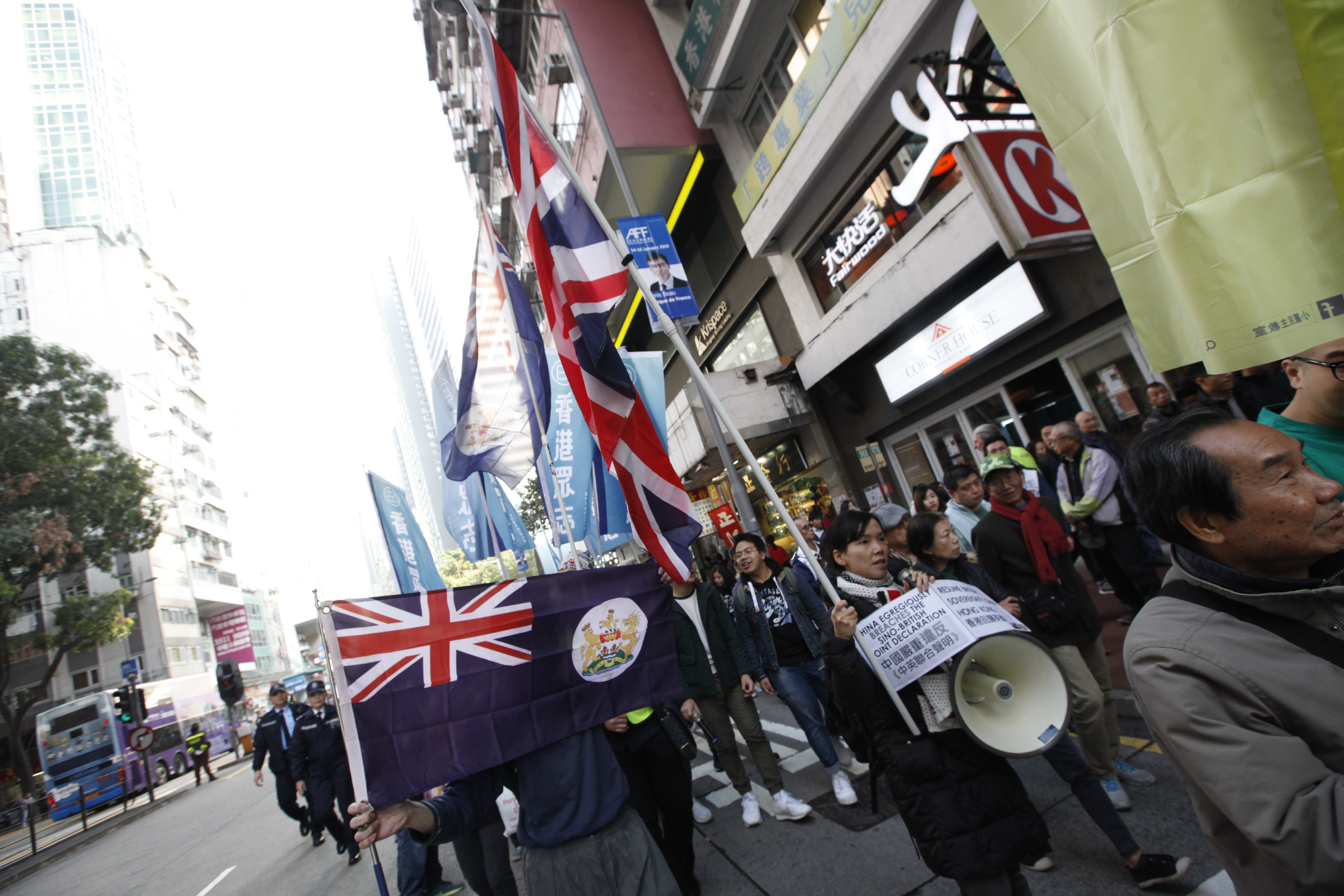
In 2000 Gordon Mathews, an American anthropologist teaching at the Chinese University of Hong Kong, published a book titled ‘Global Culture/Individual Identity’ that soon became a canonical text in the debate about post-colonial identity in Hong Kong. Virtually every paper subsequently published about this topic drew upon his research and its underlying argument that our roots are simply one more consumer choice.
The handover of Hong Kong had taken place at a time when U.S. dominance was not only a matter of political, economic and military might, but also predicated upon a cultural hegemony that needed to be constantly upheld and updated through the media and education in order to shape public opinion. Postmodernism proved to be an exceptionally versatile and well-suited tool to maintain that hegemony. Postmodernist ideas, for all their radical and anti-authoritarian claims, are in fact perfectly acceptable to an imperial power which understands that its rule is safest when it can fragment the identity of its opposition and most vulnerable when it has to face a united front.
It’s not a mere coincidence that in 1980s the CIA took a keen interest in French postmodernism and deemed it the best defense against Marxism. After all, a narrative that questions the distinction between facts and opinions, truth and fiction and regards reason with skepticism perfectly suits the interests of a country that successfully peddles fiction to the farthest reaches of the world thanks to its education, media and entertainment industries. The absurd and yet convincing portrayal of the U.S. as a bastion of freedom, democracy and human rights is testament to the power of these industries.
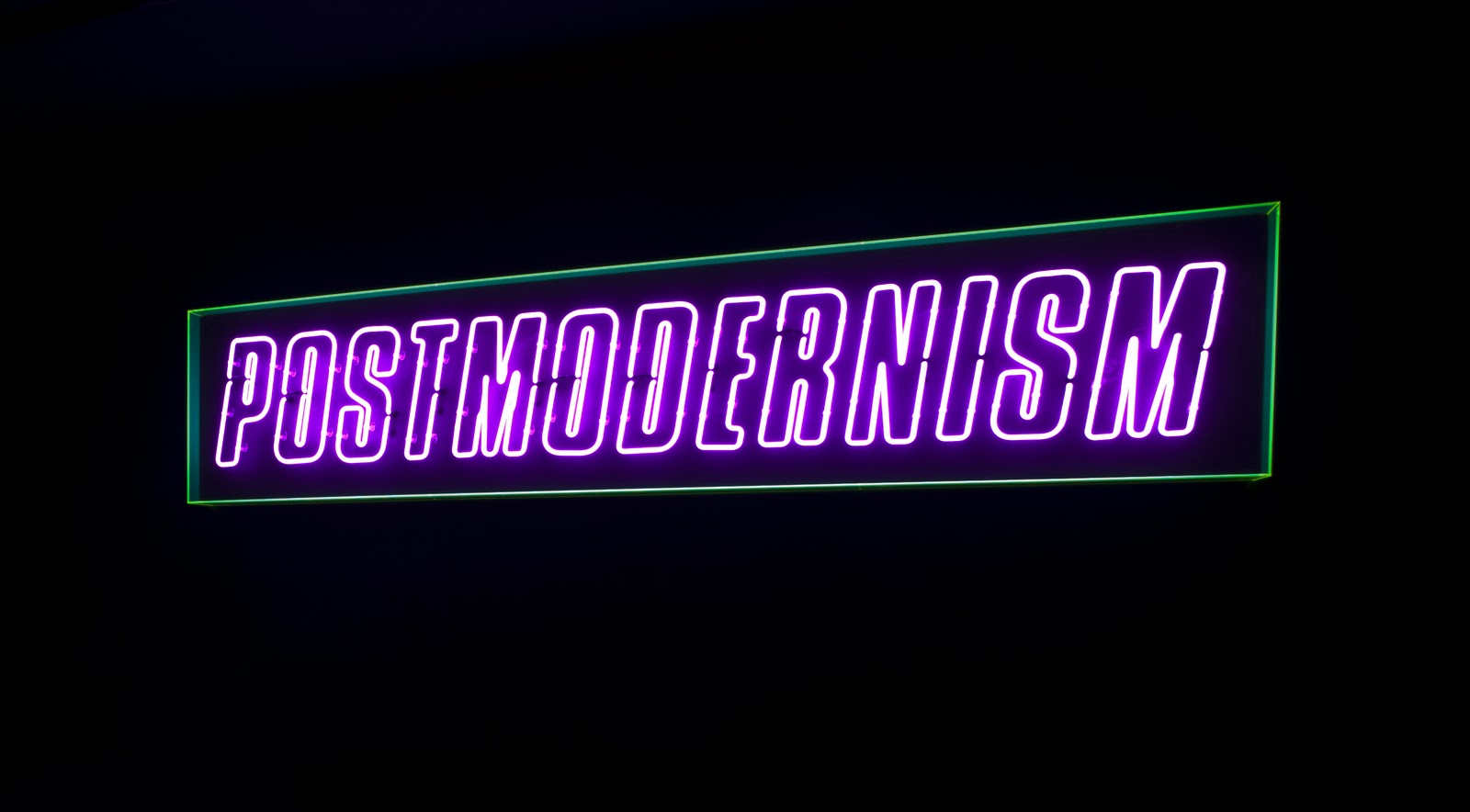
Paradoxically, the same intellectuals who had dissected the concept of national identity and rejected it as toxic refused to subject the holy trinity of ‘freedom, democracy, and human rights’ to any kind of rational scrutiny. The old skeptics and relativists soon became dogmatic defenders of ethical absolutes that by transcending any cultural, historical, and political specificity has effectively become the foundation principles of a new theology.
They conveniently forget that philosophers have been debating the concept of freedom for centuries and that, even within the same philosophical tradition, its interpretation varies considerably. They also disregard the fact that no agreed definition of democracy exists in international law and pay no attention to local rights cultures which preceded the international human rights movement by centuries.
Most worryingly, these concepts serve as empty containers, which can be filled with any content deemed useful to disguise U.S. imperialism.
The US began laying the brickwork for a colour revolution in Hong Kong even before the 1997 handover: NED funding for Hong Kong-based groups dates back to 1994 and was described as “consistent” by Louisa Greve, who was vice president of programs for Asia, the Middle East and North Africa until 2017. Its first strategic objective was to prevent the enactment of a national security law (Article 23) in Hong Kong, as this would effectively make the activities of NED and other foreign-funded organizations illegal.
When in 2003 the Secretary for Security Regina Ip announced a Bill to implement Article 23[3], as if on cue, half a million people marched against the government proposal, Mrs. Ip became the target of a coordinated vilification campaign that forced her to resign from office and the Bill was eventually withdrawn.
So, why did so many people take to the streets to oppose Article 23, even if it had no impact on their lives, didn’t infringe on their freedom of expression and assembly? Why did the legal sector, including the Bar Association and Law professors, so vehemently denounced a law that is standard in many jurisdictions, including the most liberal and democratic societies?
Besides, not even a fraction of those protesters could be described as politically active, for instance, they wouldn’t march to defend workers’ rights, demand a minimum wage or the right to breathe cleaner air, as evidenced by the small scale of previous demonstrations.
How could the Civil Human Rights Front, a coalition of NGOs, Christian churches, Trotskyites, small labour unions and opposition parties mobilize hundreds of thousands of people against Article 23? What was the glue that held these disparate groups together?
An irrational fear of China and distrust of its government and institutions might have been contributing factors, as they largely frame the mainstream media narrative about China, but the anti-China sentiment that was cultivated in colonial times could only remain dominant in political, judicial and cultural circles after 1997 thanks to the laissez-faire approach of local authorities and the relentless efforts of foreign agents and fifth columnists. Their task was to scupper the One Country Two Systems governance model and contrast any rise of patriotic feelings towards China. If the One Country Two Systems model failed in Hong Kong, the U.S. would also achieve another strategic goal at no cost, because Taiwan wouldn’t be tempted to adopt it in the future. As to the multiple implications of such failure for the rest of China, they fall outside of the scope of this article.
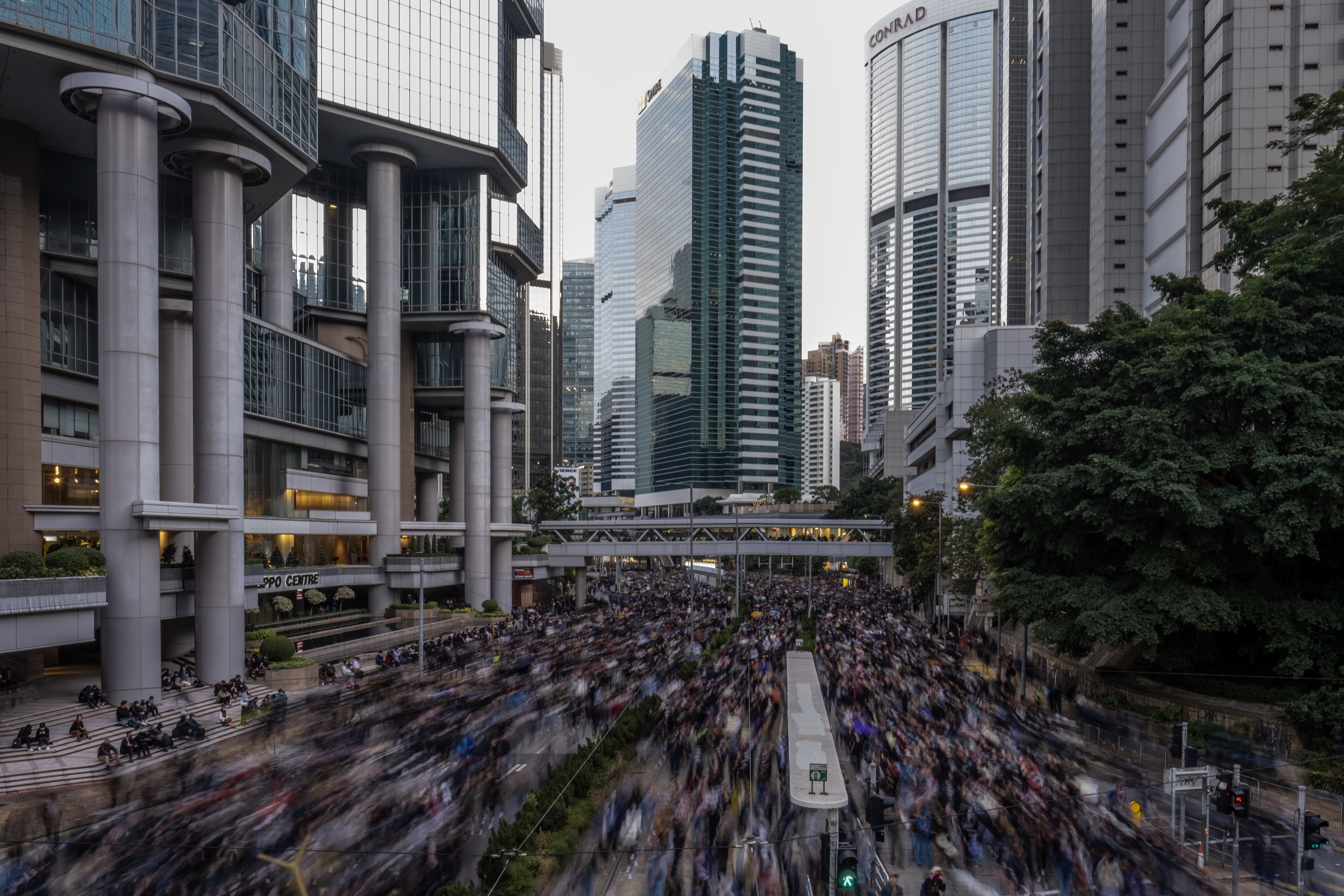
In 1999 a chance encounter with a British acquaintance I hadn’t seen for many years put me in the unenviable position of observing the methods and tactics of a NED “agent of change” at a time when very little was known about US-sponsored colour revolutions. As we lived very close to each other and shared a few interests, I had the opportunity to observe the way she and other agents operated to carry out the legal elements of illegal regime-change operations. After obtaining degrees in both Chinese language and Politics from SOAS University of London she had been offered a paid internship in New York with an NGO called Human Rights in China, mainly funded by NED and Soros’ Open Society Institute. After being appointed Research Director, in 1997 she was sent to Hong Kong by the same NGO. She was usually evasive about her employers and preferred to introduce herself as a Ph.D. student at Columbia University pursuing her academic research in the field of Human Rights Law. As a researcher, she gained access to Hong Kong universities and soon started to liaise with the Centre of Comparative and Public Law and the newly created Master Program in Human Rights Law at HKU. She co-authored several papers with the most vocal critics of the Chinese Central Government, inevitably designated as an “authoritarian and oppressive regime” in studies that focused on Tibet, Xinjiang and migrant workers, and helped facilitate academic exchanges between U.S. universities and HKU junior researchers and professors, who were often rewarded with invitations to conferences, publications, summer programs, grants, etc. American Ph.D. students researching human rights became conspicuous in the department and after a few years rose to influential positions. One could say that my acquaintance was actively recruiting and grooming academics to create a critical mass of China-haters within the Department of Law. Another important step was forging ties with community leaders, activists, journalists, and NGOs through the Street Law workshops offered by the Centre of Comparative and Public Law. Unsurprisingly among the financial sponsors of these workshops, the U.S. Consulate in Hong Kong features prominently.[4] Because violent political confrontation and anti-government activities often result in legal proceedings, the colour revolution sponsors had to make sure that there would be enough pro-bono lawyers to defend activists, enough legal scholars to challenge the government’s enactment of the most debated article in the Basic Law and to advance Western liberal values. In this light we can read the legal advice and support they offered to minority groups such as LGBT rights organizations. Advocating for same-sex marriage is a good example of how these human rights defenders put the local government in a double bind: if it didn’t meet their demands for same-sex marriage it would be cast as intolerant, oppressive and backward, if it did, the majority of citizens who held conservative views on this subject would feel alienated.
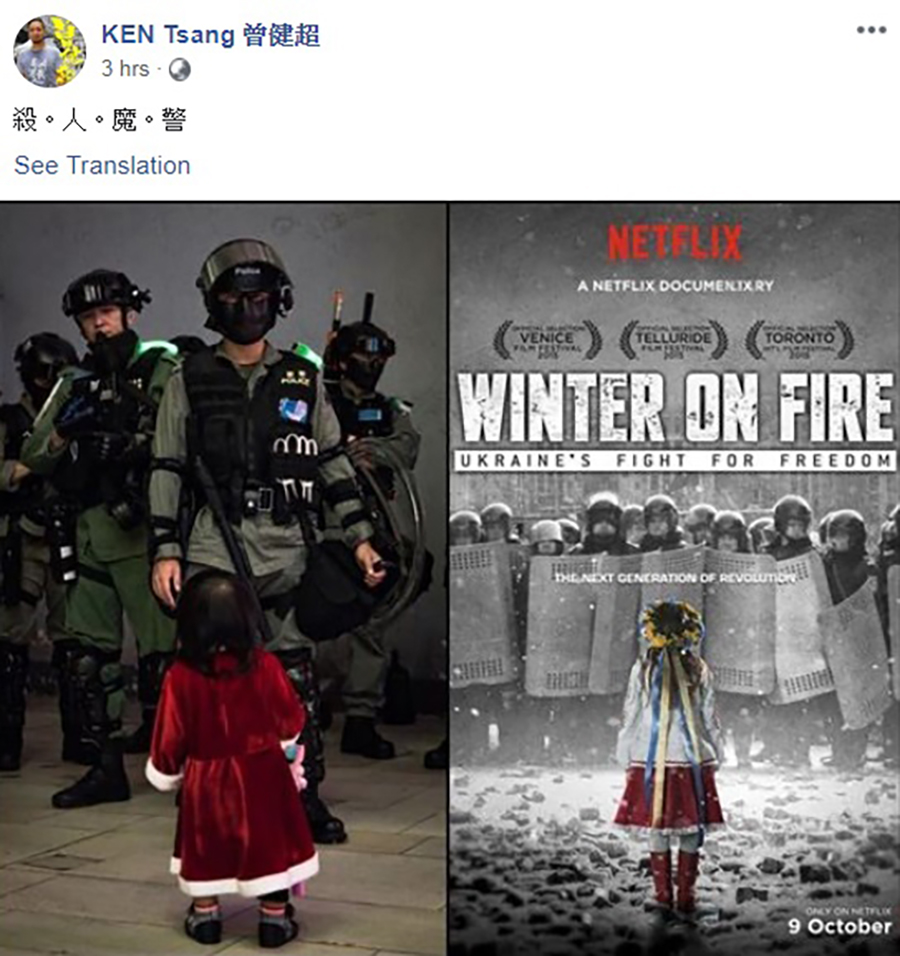
To prepare a colour revolution, a network of interlocking foundations and charities is usually set up to put thousands of people through training courses, seminars, practical tuition conducted by legal and media specialists. And that was the case in Hong Kong too. One tireless ‘agent of change’ closely associated with my British acquaintance is the director of the LLM in Human Rights Programme at Hong Kong University, a U.S. citizen. She sat on the boards of several organizations including the Hong Kong Refugee Advice Centre (as past Chairperson), Justice Centre Hong Kong, and Amnesty International (Hong Kong) and advises the Hong Kong Human Rights Monitor on a range of issues. While applauding protesters that were holding the city hostage she declared “The rule of law does not demand unquestioning obedience to existing regulations; in fact, defending the rule of law may sometimes require breaking rules”[5]. One can only wonder if she would encourage her compatriots to break rules at home.
My British acquaintance and her American pal were also closely associated with one of the board members of the Centre of Comparative and Public Law at HKU, professor Benny Tai Yiu-ting, who served as Associate Dean of the Faculty of Law from 2000 to 2008. In 2014 he was one of the initiators of the illegal Occupy Central movement, aka Umbrella Movement, and was later convicted and jailed for incitement. The prominent role played by legal experts in undermining the government authority, disseminating anti-China propaganda, organizing protests and coaching activists is reflected in the US$460,000 grant they received from NED. The 2012 NED annual report states that the money was to “foster awareness regarding Hong Kong’s political institutions and constitutional reform process and to develop the capacity of citizens — particularly university students — to more effectively participate in the public debate on political reform.”
Twenty years ago my acquaintance was not only active in the subversive cluster that was growing in size at the HKU Department of Law, but was also using her connection with the department as a credential to approach political groups and civil society organizations. Using the usual code word “human rights” she moved with ease from Christian groups such as the Hong Kong Women Christian Council to a Trotskyite ragtag collective called April Fifth Action Group which was led by “Longhair” Leung Kwok-hung.
This group was generally dismissed as a bunch of politically marginal, ridiculous characters better-known for posturing and shouting nonsense into their loudspeakers than their ability to get their point across in a coherent manner. In private she too joked about their intellectual limitations, but she was coaching them with the zeal of a missionary. In any case her coaching achieved some results, as Leung Kwok-hung, in his trademark Che Guevara t-shirt, was elected to the Legislative Council in 2004. It’s worth noting that both his group and the various Christian ones she had ‘befriended’ were among the founders of the Civil Human Rights Front, the coalition of NGOs, civic and religious groups, pro-democracy parties that in 2003 mobilized half a million people against Article 23 of the Basic Law. Such a large-scale demonstration, unusual for Hong Kong, was a swarm response to a threat that had been carefully manufactured and amplified by the anti-China forces that formed this front. By now we know that the National Endowment for Democracy, through the Solidarity Center (SC) and the National Democratic Institute (NDI) between 1995 and 2013, injected more than $1.9 million into the coffers of this coalition.[6]
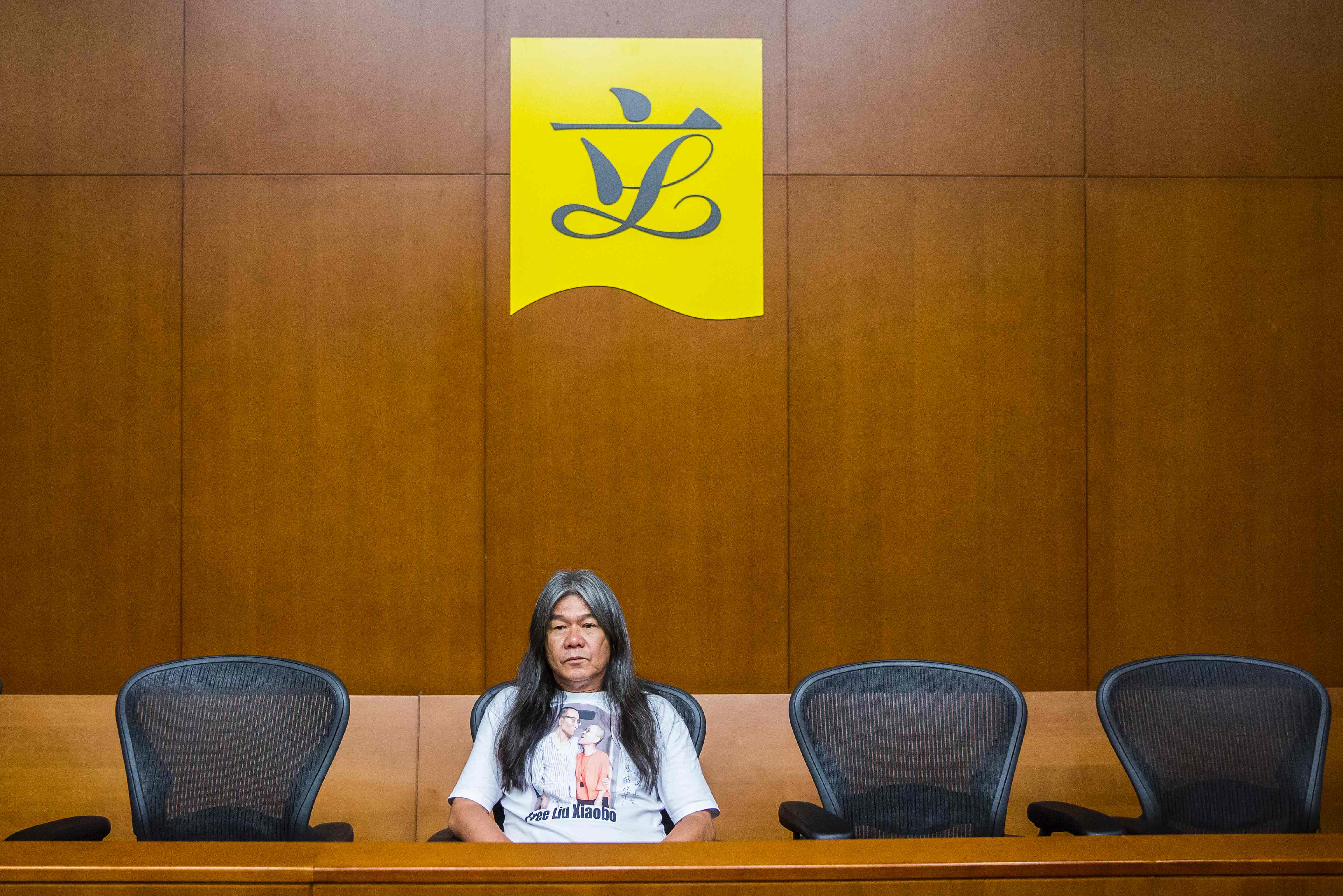
The role of Trotskyites in enabling the West to create contact with members of the opposition in Soviet Bloc countries in the 1980s is well-known and has been researched by historians. It seems that they still have some use for Washington, like Christian groups.
As to my acquaintance’s tireless activism, it was financially well rewarded — she and her unemployed husband could live comfortably in one of the most expensive cities in the world and jet between Hong Kong, New York, and London. When her mission was accomplished she was granted a scholarship at an Ivy League university that led to a predictable academic career: teaching and writing about human rights and social movements in China.
By the time of her departure, a network of interlocking foundations and charities, think tanks, education, art and culture groups had already started to proliferate and could not only provide the logistics for the transfer of funds to activists but also sponsor work visas for foreign nationals and establish channels to recruit local members. The ultimate irony is that many of these organizations and groups even applied for and received public grants to finance their ‘soft power’ operations. They put thousands of people through training courses conducted by legal, education, and media specialists. Their media-savvy, public relations campaigns achieved a great degree of success even before social media entered the fray.
What is to be done?
The process of ideological subversion we have witnessed in Hong Kong required seed capital, both human, cultural, and financial. Once the seeds have been sown, it’s extremely difficult to remove the weeds that strangle our society. It takes from 15 to 20 years to demoralize a nation. Why that many years? Because this is the minimum number of years required to educate one generation and now you can’t get through to those who have been educated to hate China. They are programmed to think and react to certain stimuli in a certain pattern. You cannot change their mind even if you expose them to authentic information. Even if you prove that white is white and black is black, you still cannot change their basic perception and behavior. Facts no longer matter, emotion is everything. The swarm pods are no different from an echo-chamber and where they create clusters rational debate becomes impossible. We need to accept that Hong Kong is in the midst of a deep-rooted civil conflict of the sort that lasts decades.
In other words for these people the process of demoralization is complete and hardly reversible. It will take another 15 or 20 years to educate a new generation of patriotic citizens who would be acting in the interests of China.
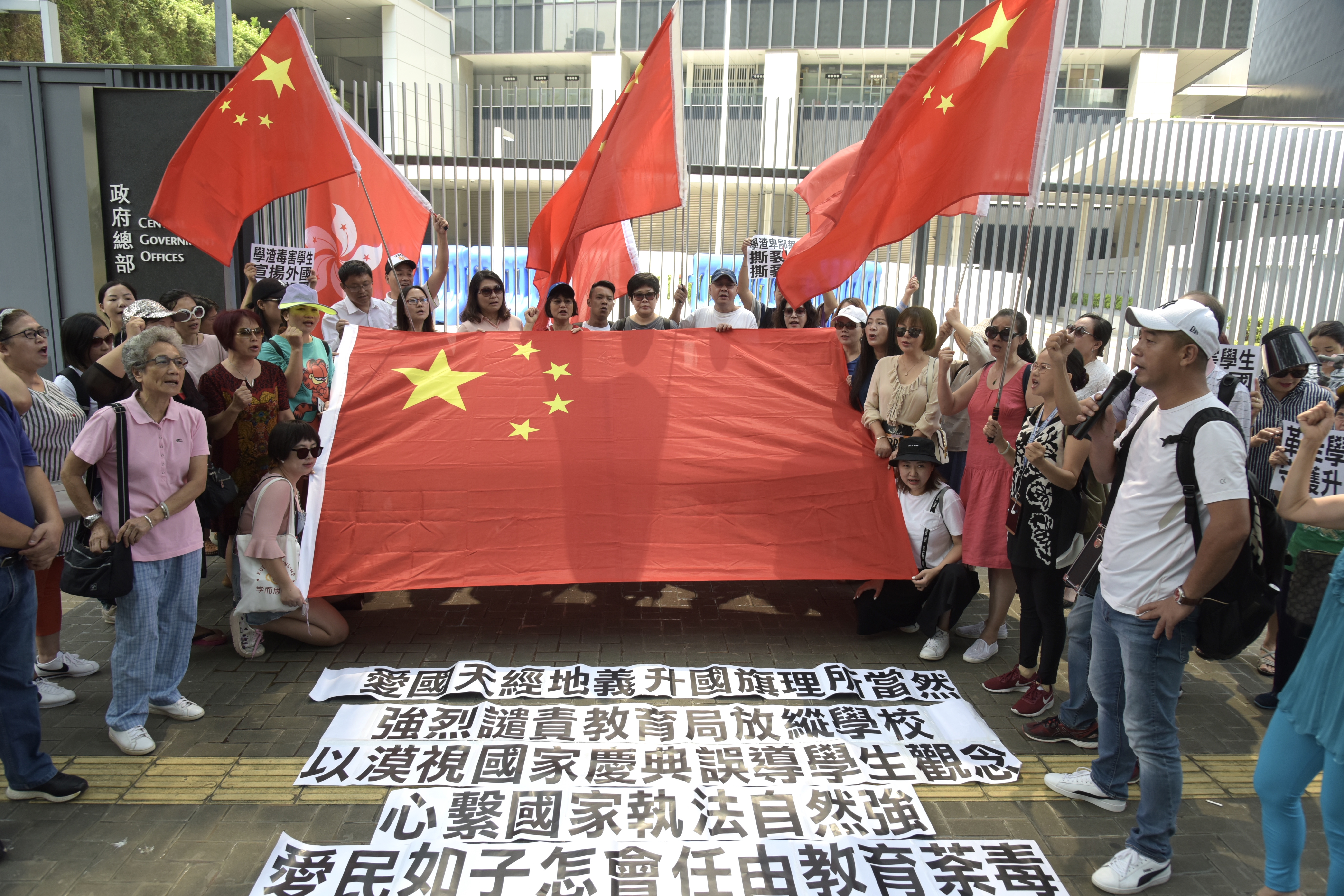
I would argue that China needs a hands-on rather than a hands-off approach in Hong Kong in order to ignite the imagination of Hong Kong’s new generations and mobilize anti-colonial and anti-imperialist forces. Local cadres must be trained to exploit the contradictions of the pro-democracy camp whose empty rhetoric about social justice is backed by an imperialist super-power that is ruled by a capitalist elite. China shouldn’t shy away from the ideological battle that is being fought in Hong Kong: as a more equitable society than the U.S., the Chinese model can provide an attractive alternative to the hypocrisy of the neo-colonialist front, an alternative that draws not only on national pride and tradition but also on the revolutionary history of the Chinese Communist Party. Even during the Long March, while faced with many hardships, Mao Tse-Tung attached great importance to art and literature, fully aware of the role played by culture in shaping public opinion. Winning the hearts and minds of the younger generations requires mobilization of soft power not only in the education and media fields but also in so-called ‘fringe cultures’ where opposition to mainstream cultural norms and values is elaborated.
[1] NED was envisaged by US foreign policy elites to be a more suitable way to provide strategic funding to nongovernmental organizations and opposition parties than via covert CIA funding.
[2] Yi Edward Yang & Xinsheng Liu, The ‘China Threat’ through the Lens of US Print Media: 1992–2006, Journal of Contemporary China.
[3] Article 23 is an article in the Basic Law of Hong Kong. It states that the Hong Kong Special Administrative Region “shall enact laws on its own to prohibit any act of treason, secession, sedition, subversion against the Central People’s Government, or theft of state secrets, to prohibit foreign political organizations or bodies from conducting political activities in the Region, and to prohibit political organizations or bodies of the Region from establishing ties with foreign political organizations or bodies.”
[4] http://www.law.hku.hk/ccpl/street-law-in-asia/partners/
[5] https://www.scmp.com/comment/insight-opinion/article/1612065/students-protest-no-way-undermines-our-rule-law
[6] https://www.globalresearch.ca/american-government-ngos-fuel-fund-hong-kong-anti-extradition-protests/5680581








Comment